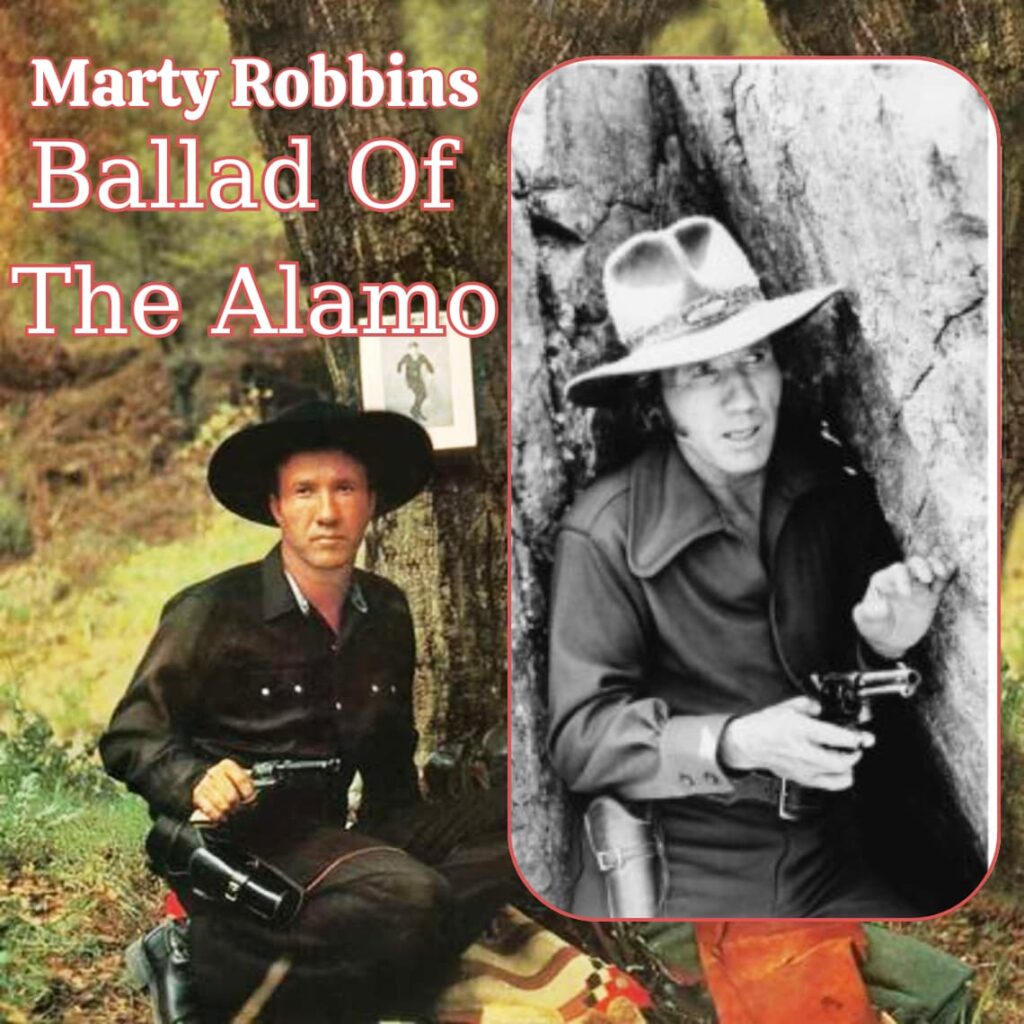
A Heroic Stand Etched in Song: The Enduring Legacy of “Ballad of the Alamo”
Ah, there are some melodies that, with just a few opening notes, transport you back to a simpler time, a time when stories were told with grand sweep and genuine emotion. And for many of us, especially those who came of age when the airwaves hummed with tales of courage and sacrifice, Marty Robbins’ “Ballad of the Alamo” is one such tune. Released in 1960 as part of the soundtrack for John Wayne’s epic film, The Alamo, this powerful ballad quickly resonated with audiences, climbing to Number 34 on the Billboard Hot 100 chart and Number 2 on the Billboard Hot Country Singles chart. It wasn’t just a song; it was a testament, a eulogy, and a vivid painting of a moment in history that forever shaped the American spirit.
The year 1960, for many of us, feels like a lifetime ago, yet the echoes of that era, the sense of optimism mixed with a deep respect for historical narratives, remain remarkably clear. Marty Robbins, a craftsman of storytelling through song, was the perfect artist to bring this particular tale to life. Known for his “gunfighter ballads and trail songs,” Robbins possessed a unique ability to imbue his narratives with both grit and grace. His voice, a smooth baritone with just the right touch of melancholy, was perfectly suited to the somber grandeur of “Ballad of the Alamo.”
The story behind the song is, of course, inextricably linked to the film it accompanied. John Wayne, a titan of American cinema, poured his heart and soul (and a considerable amount of his own money) into bringing the 1836 Battle of the Alamo to the big screen. He envisioned a sweeping historical drama that would honor the men who, against overwhelming odds, made a valiant last stand for Texan independence. He specifically commissioned songwriters to create a theme song that would capture the essence of this monumental event. While Dimitri Tiomkin composed the film’s magnificent orchestral score, it was Paul Francis Webster and Dimitri Tiomkin himself who penned the poignant lyrics and stirring melody of “Ballad of the Alamo.”
The meaning of the song is as clear as the Texas sky: it’s a tribute to courage, sacrifice, and the enduring human spirit in the face of insurmountable adversity. It recounts, in vivid detail, the final days and moments of the defenders of the Alamo – figures like Davy Crockett, Jim Bowie, and William B. Travis. The lyrics paint a picture not of reckless bravado, but of a quiet, determined resolve. “In the southern part of Texas, near the town of San Antone,” the song begins, immediately setting the scene for a tale of frontier heroism. It meticulously chronicles the siege, the dwindling numbers of the defenders, and their ultimate refusal to surrender.
What truly elevates “Ballad of the Alamo** beyond a simple historical recounting is its emotional depth. For older listeners, it evokes a profound sense of patriotism and admiration for those who stood for their beliefs. It reminds us of a time when honor and duty were held in the highest regard, and when the narrative of American exceptionalism was woven into the fabric of popular culture. The song doesn’t shy away from the tragic outcome, but rather frames it as a noble sacrifice, a cornerstone of liberty. “They died for Texas and for freedom,” the lyrics proclaim, cementing the legacy of these men in the annals of history and in the hearts of those who remember their story.
Listening to Marty Robbins sing “Ballad of the Alamo” today is more than just an exercise in nostalgia; it’s a poignant reminder of the power of a well-told story, especially one rooted in the foundational myths of a nation. It’s a song that speaks to resilience, to the quiet courage found in ordinary men facing extraordinary circumstances. It’s a testament to the fact that even in defeat, there can be victory in the spirit and in the enduring memory of a heroic stand. For many of us, it’s a song that, like the memories of cherished moments, never truly fades, its melody and message echoing through the years, reminding us of the unwavering strength of the human heart.